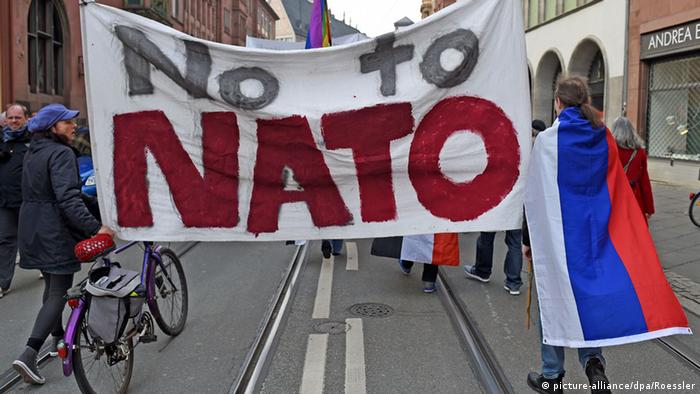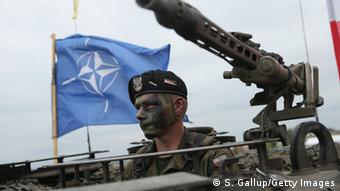dw.com
NATO has upgraded its readiness to confront battlefield threats, but public-diplomacy failings could hobble quick deployments. Teri Schulz reports from Brussels.

Excerpt from article:
... NATO leaders must acknowledge that, as much work as they've put into reinforcing solidarity within the structures of the alliance, they need to address a massive solidarity problem among their publics, especially with military deployments in some countries dependent on parliamentary approval, a.k.a.: public support.
A Pew Research Center survey shows more than half of French, Germans and Italians would not support the use of military force in a hypothetical conflict with Russia. ...
Visiting some of the series of exercises throughout the Baltics and Poland, NATO Secretary General Jens Stoltenberg declared them a "strong expression of the commitment of all allies to protect each other … the core task of NATO." "It's all for one and one for all," Stoltenberg told the press assembled to watch Noble Jump in Zagan, Poland. Asked about the apparent lack of public support for collective defense, Stoltenberg said "of course there will be different political discussion in different allied countries, but the commitment is there, it's strong and it's once again confirmed by the alliance by the implementation of the Readiness Action Plan," of which the spearhead force is a component.
But, standing beside him, Polish Defense Minister Tomasz Siemoniak said the numbers in the survey should be taken seriously. He said both politicians and the media should be explaining to the public that "this peaceful period after the Second World War is now over," citing crises erupting not only in Europe's nearest neighborhood but also the threat of the "Islamic State" and other security challenges in North Africa. ...
Onus on politicians
NATO knows that regardless of how tuned up the military machine is, the alliance must deal with a still slow political side and outreach efforts that have thus far obviously been insufficient to increase public support. Dr. Joerg Forbrig, a Transatlantic fellow at the German Marshall Fund in Berlin, says NATO should indeed be "shocked" by the results, but that he believes the situation is already gradually improving as the public's "slow digestion" of threat perception takes place. ...
[A]s disappointing as the numbers may be to NATO leaders, it's important to know what needs to be done in terms of public awareness. "One of the reasons we do these surveys is to hopefully inform the public policy process," he added. "The fact we've stirred the pot here a bit is a very good thing."

No comments:
Post a Comment